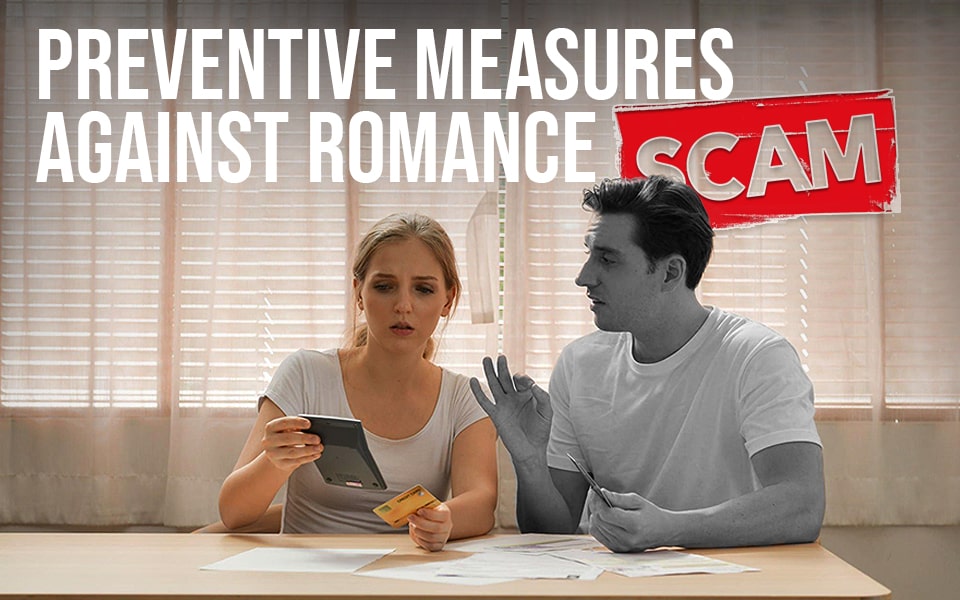


Modern dating methods paved the way for technological intervention in making love or meeting others in the name of socializing, the allure of finding love through virtual connections is accompanied by an alarming rise in romance scams. In this article we focused on the legal consequences of romance scams to protect people seeking affection, exploring catfishing methods and identity theft cons.
Understanding the legal aspects:
Perpetrating romance scams will lead to severe consequences like imprisonment, fines, restitution, and detention. Since communication happens virtually, it is difficult to expose reality and deception.
Internet Dating Fraud includes a range of fraud practices where individuals trick people into falling into a romantic relationship and make them believe and exploit them financially or for other illicit purposes. Dating fraud, or in other words romance scams, involves emotions and trust as weapons to keep them safe from suspicion and asks individuals for money, gifts, or personal information. The main goal of dating fraud is to exploit the victim’s emotions and create a false sense of intimacy to financially exploit them.
There are many types of romance scams online. Let us look into some of them:
Catfishing is a type of online dating scam where a person approaches or communicates with others with the help of a fake online identity, using attractive profile pictures and false information, to fool victims and trap them in a romantic relationship.
Scammers may pose as Russian “mail-order brides” or create fake profiles on dating sites, specifically targeting individuals interested in pursuing relationships with Russian individuals.
In this type of scam, the scammer convinces the victim to accept money deposits into their bank account and then transfer the money to another account, usually overseas. The deposited money is often withdrawn illegally, and the victim unknowingly gets involved in a money laundering crime.
Scammers purchase items with stolen credit cards and have them delivered to the victim’s address. The victim is then asked to resend the items to another location, unknowingly participating in the resale of stolen goods.
Some scammers aim to obtain the victim’s personal information, such as social security numbers or financial details, for identity theft purposes.
Scammers may manipulate victims into sharing intimate photos or engaging in explicit conversations, only to later use this information to blackmail and extort money from the victim.
In this scheme, the scammer promises a future romantic relationship but requests money upfront for various reasons, such as travel expenses, visas, or processing fees. Once the money is sent, the scammer disappears.
Scammers use pre-recorded videos or looped clips to fake live webcam interactions during online chats, making the victim believe they are interacting with a real person.
The penalties for romance scams can vary depending on the jurisdiction, the severity of the scam, and the specific laws that have been violated. Other types of romance scams are wire scams, mail scams, identity theft/false identity, and financial crimes, which are subject to criminal prosecution. Perpetrators of romance scams or any type of dating scams will face substantial prison sentences if convicted. Depending on the severity of the scam and the amount of money involved, imprisonment duration might be in years and sometimes in decades.
In addition to imprisonment, those convicted of romance scams may be ordered to pay fines as part of their sentence. Scammers may be ordered to pay restitution to the victims, reimbursing them for the money they lost in the scam. In some cases. If the scammer acquired assets or property through the scam, the court may order the forfeiture of those assets to compensate the victims.
Sometimes, the Federal Bureau of Investigation (FBI) agencies intervene to solve the cases if they find any complexities or if there is any significant financial loss, cross state lines, or have international connections.
If you have fallen victim to an online dating fraud and incurred financial losses, it is prudent to consider seeking assistance from a fund recovery service. The Zecoup services are tailored to support romance scam victims in reclaiming their funds lost to various scams, including romance scams. We employ professionals who have expertise in fields like law, banking, and ethical hacking. They investigate to ascertain the identity and location of the scammers in a lawful manner and a professional lawyer who assists in court proceedings.
Romance scammers mostly use tactics such as catfishing, building trust through consistent communication, and soliciting money or gifts under the guise of personal emergencies or financial hardship.
Yes, romance scamming is considered a crime. It involves various forms of fraud, including wire fraud, mail fraud, identity theft, and financial crimes. Perpetrators of romance scams can face legal consequences, such as imprisonment, fines, and criminal records, for their deceptive actions and exploitation of victims' emotions and trust.
Romance scams are investigated by local police, federal law enforcement agencies like the FBI, and sometimes international authorities in cases involving cross-border activities.
Protect yourself and others from the perils of online dating scams. Learn from the experts atZecoup about the legal consequences of romance scams. Contact us today if you have lost funds in a dating fraud!
